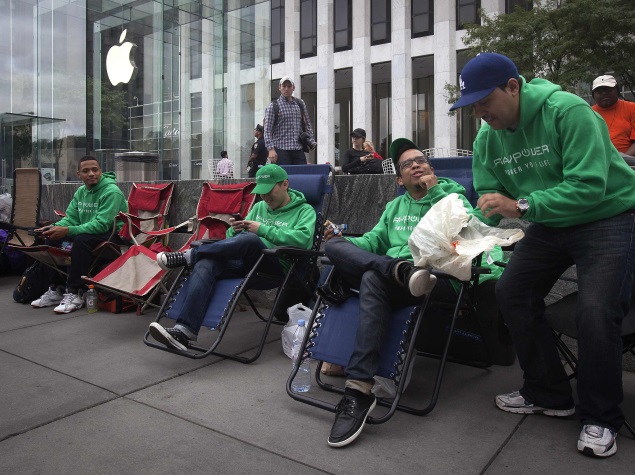Technology giant Apple has announced a modification in its new iOS 8
operating system for mobile phones which prevents the company from
accessing the devices without the owner's consent or passcode, a measure
to hinder police snooping.
Apple said in a statement released
Wednesday said that unlike its competitors, it is no longer able to
access user devices without the passcode (or password), something that
was possible so far. Apple has modified its encryption system so as to
prevent itself from accessing the devices and user accounts, and this
gets applied automatically once the user has set the password. Notably,
information stored on Apple servers, and not on the iOS 8 devices, can
still be accessed by the company.
"On devices running iOS 8, your
personal data such as photos, messages (including attachments), email,
contacts, call history, iTunes content, notes, and reminders is placed
under the protection of your passcode. Unlike our competitors, Apple
cannot bypass your passcode and therefore cannot access this data. So
it's not technically feasible for us to respond to government warrants
for the extraction of this data from devices in their possession running
iOS 8," read the statement.
The
security improvement protects information which can be stored in
devices or Apple users' accounts such as photographs, emails, contacts,
calls, messages, handwritten notes or multimedia content. The measure is
in response to accusations that the company cooperated with other
technology companies and the US National Security Agency when they asked
Apple for user details.
In an effort to distance itself from the
accusations of collaborating with the US government, Apple said
Wednesday that it had provided federal authorities with data of 'less
than 0.00385 percent' of the device users.
It elaborated,
"Government information requests are a consequence of doing business in
the digital age. We believe in being as transparent as the law allows
about what information is requested from us. In addition, Apple has
never worked with any government agency from any country to create a
'back door' in any of our products or services. We have also never
allowed any government access to our servers. And we never will."
Written with inputs from IANS
 BGMI 2.8 Update Is Now Live: Zombies Edge Mode, Hoverboard, More10 October 2023
BGMI 2.8 Update Is Now Live: Zombies Edge Mode, Hoverboard, More10 October 2023 Apple’s iOS 17 Will Not Be Compatible With Some Older iPhone Models: Check Here6 June 2023
Apple’s iOS 17 Will Not Be Compatible With Some Older iPhone Models: Check Here6 June 2023 Google Tensor G3 Tipped to Offer 9 CPU Cores, AV1 Encode Support, UFS 4.0 Storage, More5 June 2023
Google Tensor G3 Tipped to Offer 9 CPU Cores, AV1 Encode Support, UFS 4.0 Storage, More5 June 2023 Google Pixel Watch 2 to Launch This Year Alongside Pixel 8 Series: Report6 May 2023
Google Pixel Watch 2 to Launch This Year Alongside Pixel 8 Series: Report6 May 2023 iPhone Models Supporting iOS 16 Will Be Compatible With iOS 17: Report6 April 2023
iPhone Models Supporting iOS 16 Will Be Compatible With iOS 17: Report6 April 2023



![Gadgets 360 With Technical Guruji: News of the Week [April 20, 2025]](https://c.ndtvimg.com/2025-04/if5c1cvo_news-of-the-week_160x120_20_April_25.jpg?downsize=180:*)
![Gadgets 360 With Technical Guruji: Ask TG [April 20, 2025]](https://c.ndtvimg.com/2025-04/561hesm_ask-tg_160x120_20_April_25.jpg?downsize=180:*)










